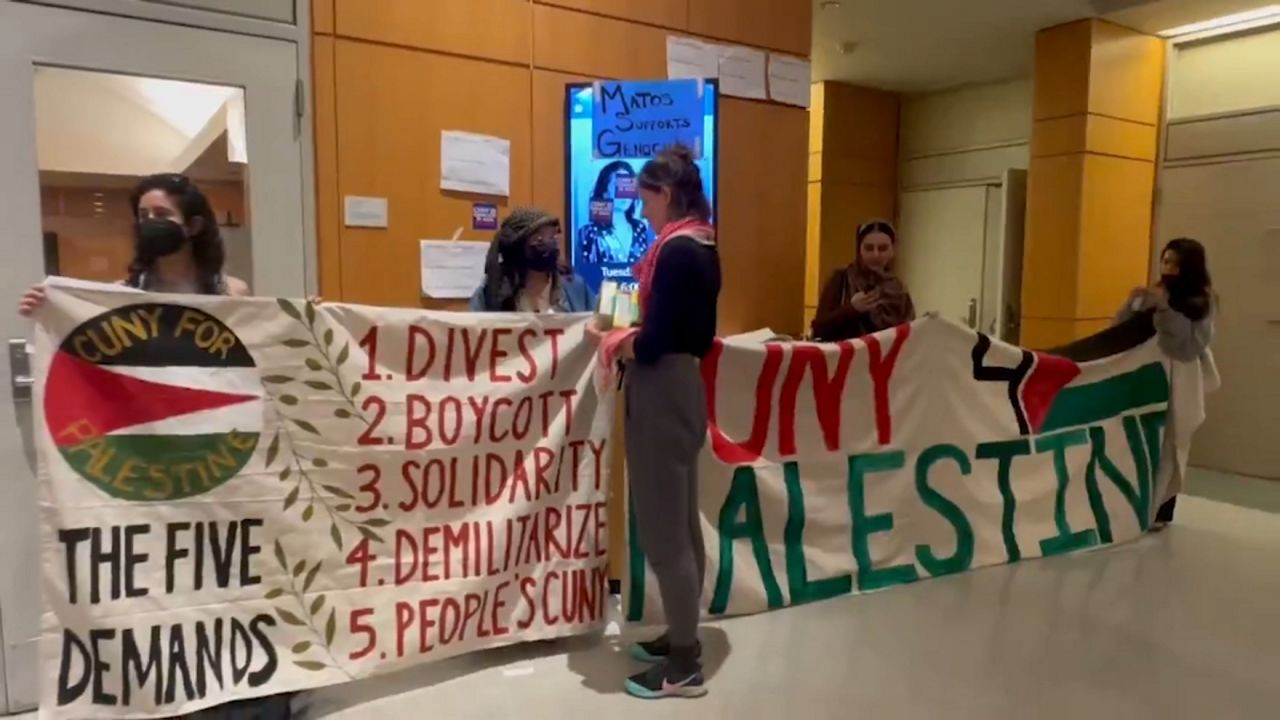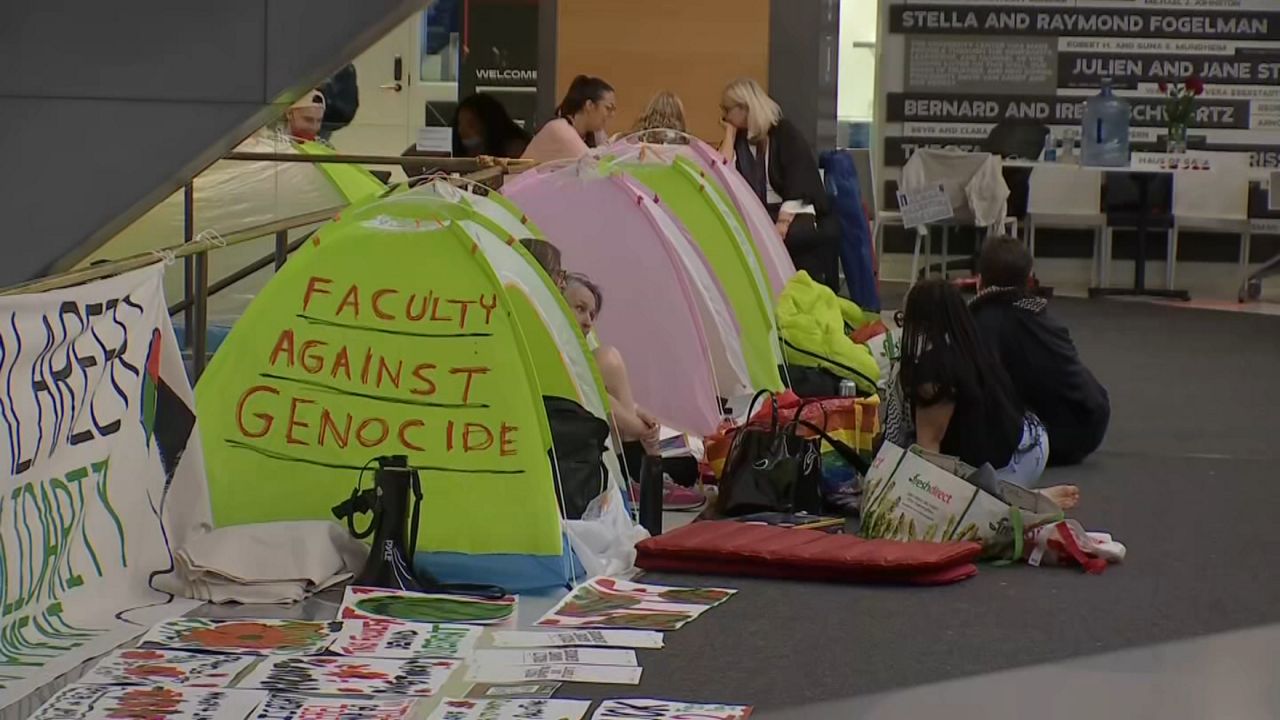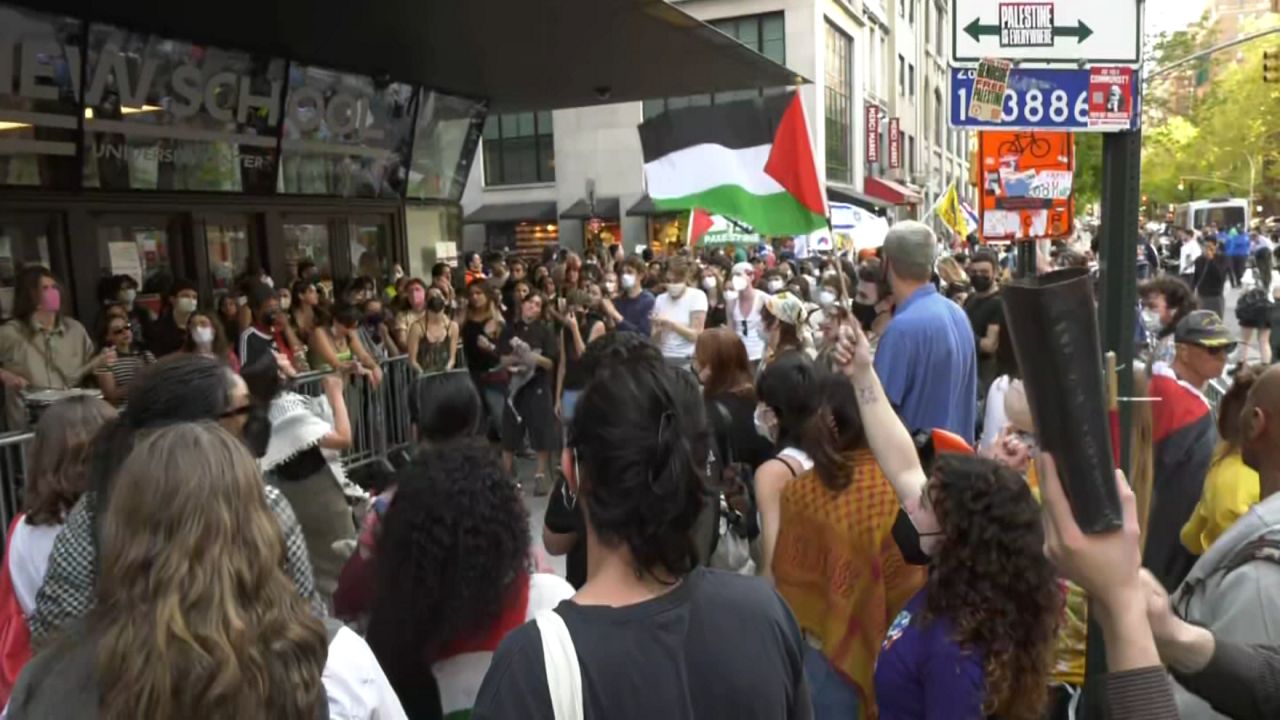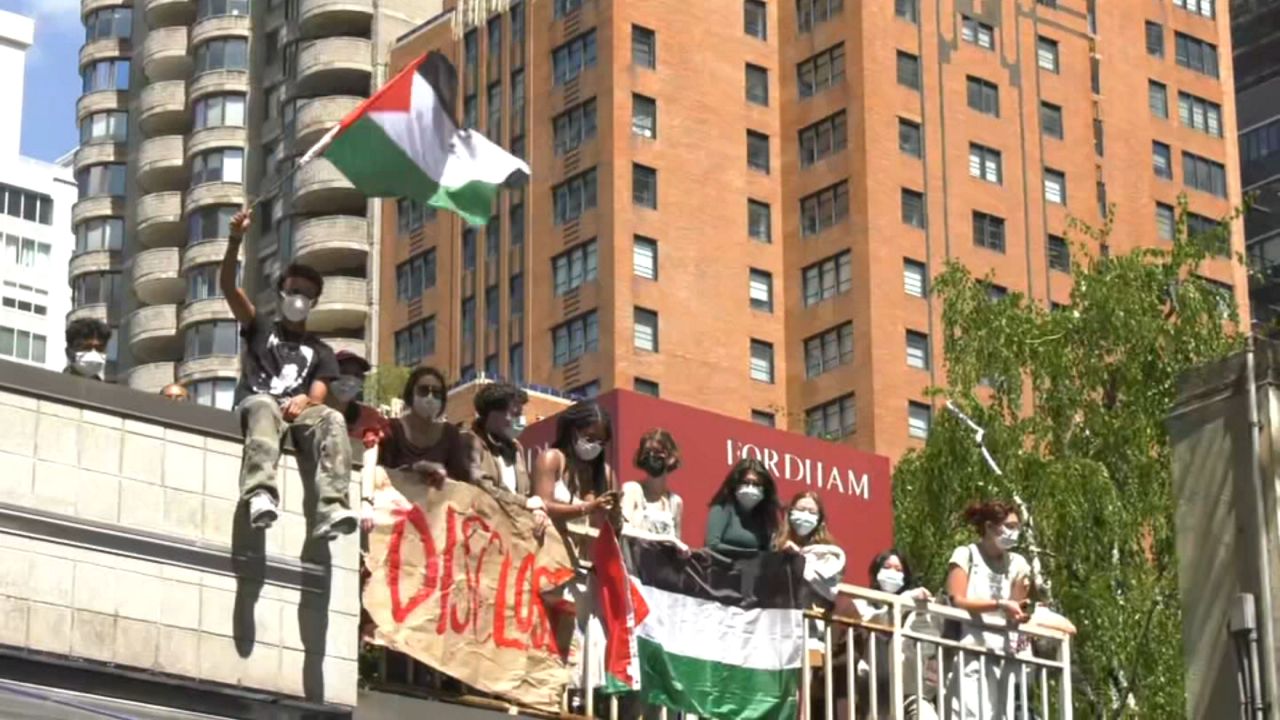Pro-Palestinian demonstrators protested against Israel at Columbia University, New York University, the City College of New York and The New School this spring.
Among the demands was for the universities to divest from companies that support Israel or profit from the conflict.
What You Need To Know
- Rebecca Kobrin, a Jewish Immigration and Jewish History professor at Columbia University, held her class at her apartment in response to the police presence at Columbia and to help her students attend class easier
- Columbia called in police twice during the demonstrations arresting more than 200 people for charges including trespassing
- Arang Keshavarzian, a Middle Eastern and Islamic Studies associate professor at New York University, said he believes that after Hamas' unprovoked attack on Israel and massacre on Oct. 7, there should have been measures in place to promote civil discourse at campuses
- Both professors said they believe the protests were necessary because students deserve a significant space in the public discourse
“Once the university decided to put classes on Zoom, I offered to have my class my final class in my apartment so that we could go from face to face but some of the students did not feel comfortable even going outside because of the heavy police presence on campus,” Rebecca Kobrin, a Jewish Immigration and Jewish History professor at Columbia University, said.
Kobrin said since the campus was closed, having the class at her apartment was easier for some of her students.
Columbia called in police twice during the demonstrations, arresting more than 200 people for charges including trespassing.
Kobrin said there were instances on campus where she was concerned for students taunted with anti-Semitic rhetoric.
“It was an experience unlike the way it was during the day. Therefore, the binaries of peaceful and violent it was not violent, but it was not peaceful,” Kobrin said about the night she visited the encampment.
There were though confrontations at each campus. The NYPD arrested protesters at City College and NYU as well.
“What we ended up with was a lot of frustration, a lot of confusion and I would say a fair amount of misunderstanding,” Arang Keshavarzian, a Middle Eastern and Islamic Studies associate professor at NYU, said.
Keshavarzian believes that after Hamas’ unprovoked attack on Israel and massacre on Oct. 7, there should have been measures in place to promote civil discourse at campuses.
“I would argue universities, including my own, unfortunately, NYU didn’t create a space in the fall and in the winter months for students and faculty who view things differently who had a different understanding of the histories,” Keshavarzian said.
He said many of his students struggled with deep connections to the war.
“Some who have lost family members in Israel and they lost family members in Gaza. Some who felt like they have been through a lot of pain,” Keshavarzian said.
He said he wishes institutions of higher learning created safe spaces just for a free exchange of ideas for the students coping with loss and for those just trying to understand the conflict in the Middle East.
“I wish in this past year we focused on the Israeli-Palestinian conflict as a political conflict rather than a religious struggle between two different religions,” Keshavarzian said.
Both Kobrin and Keshavarzian said they believe the protests were necessary because students deserve a significant space in the public discourse.







